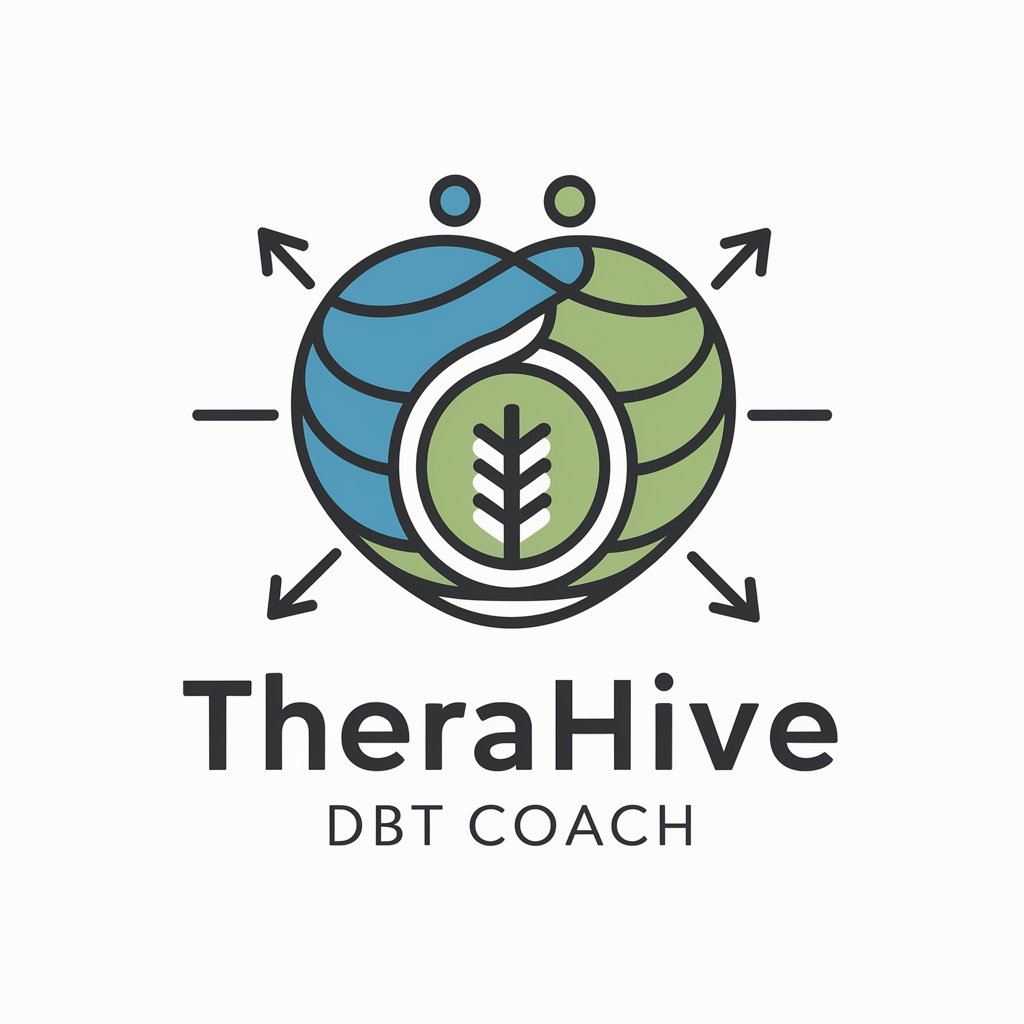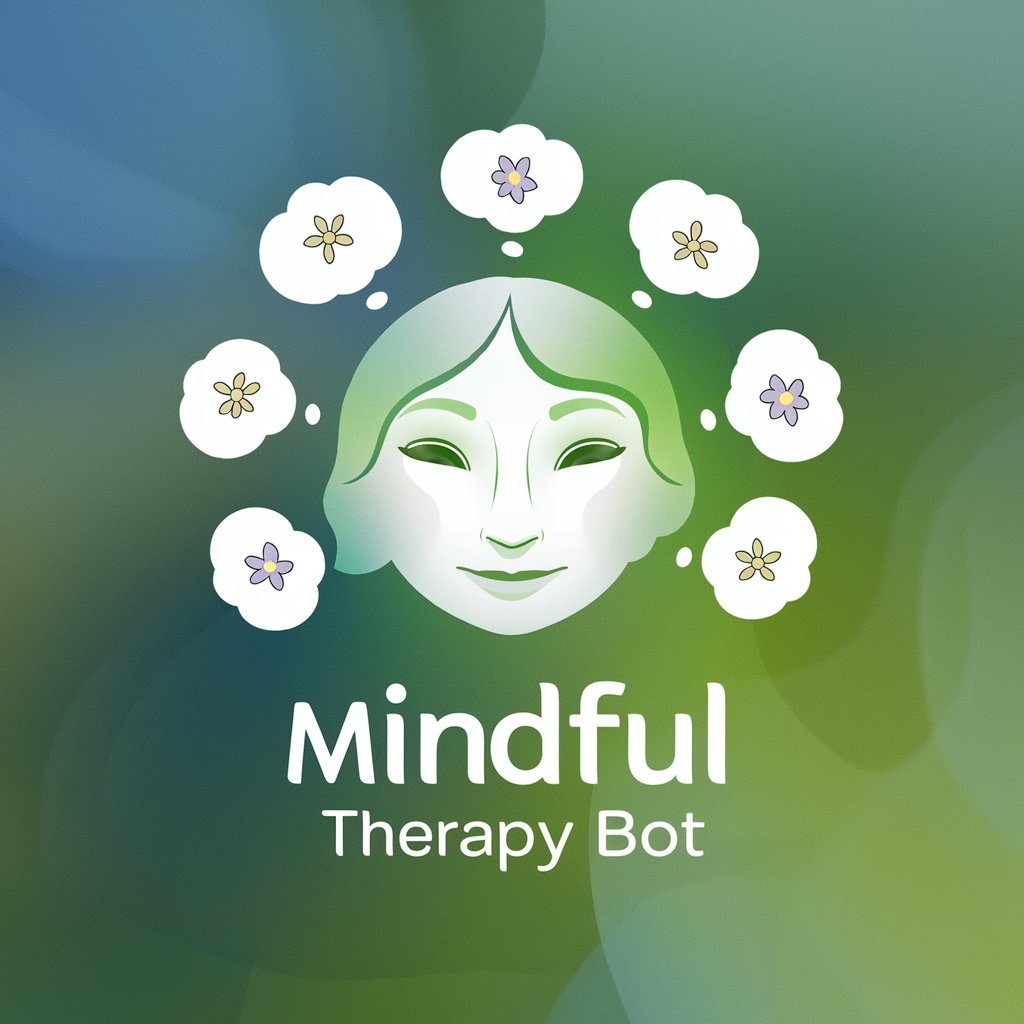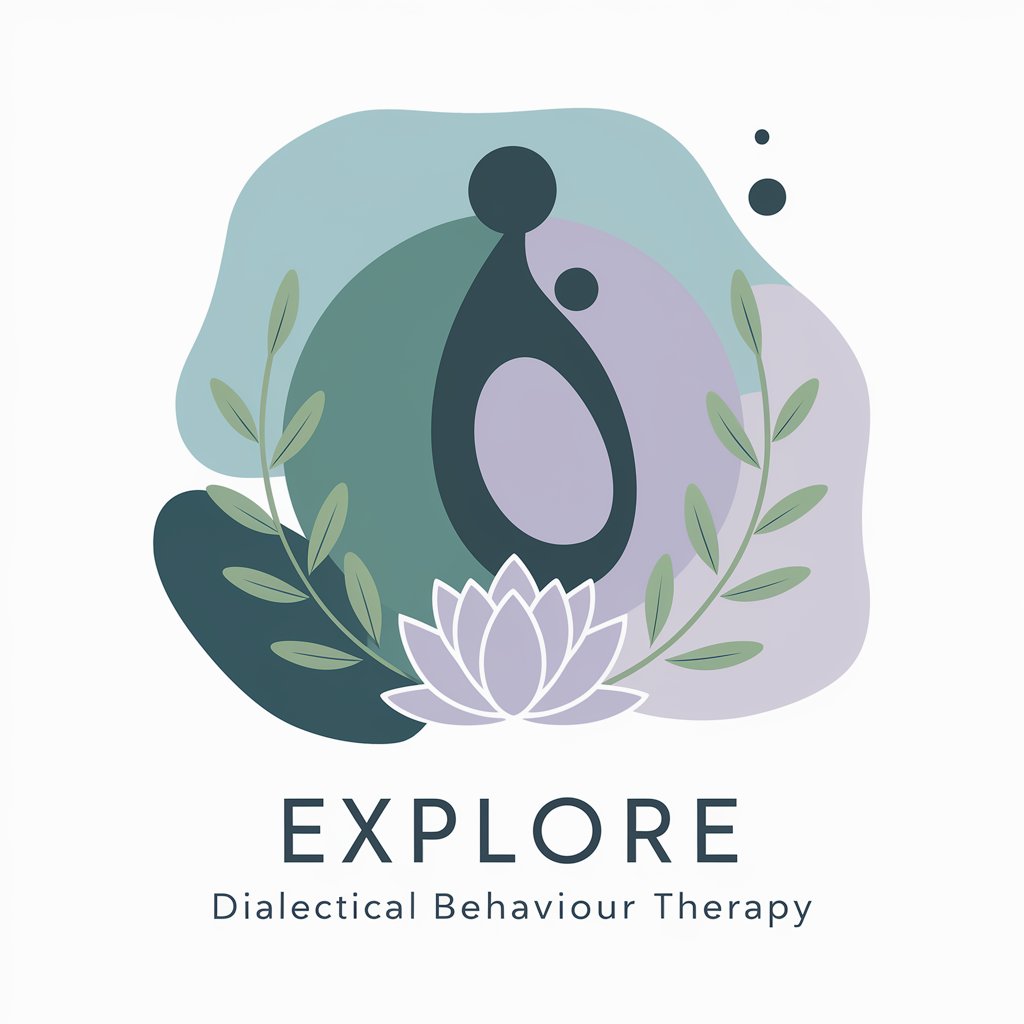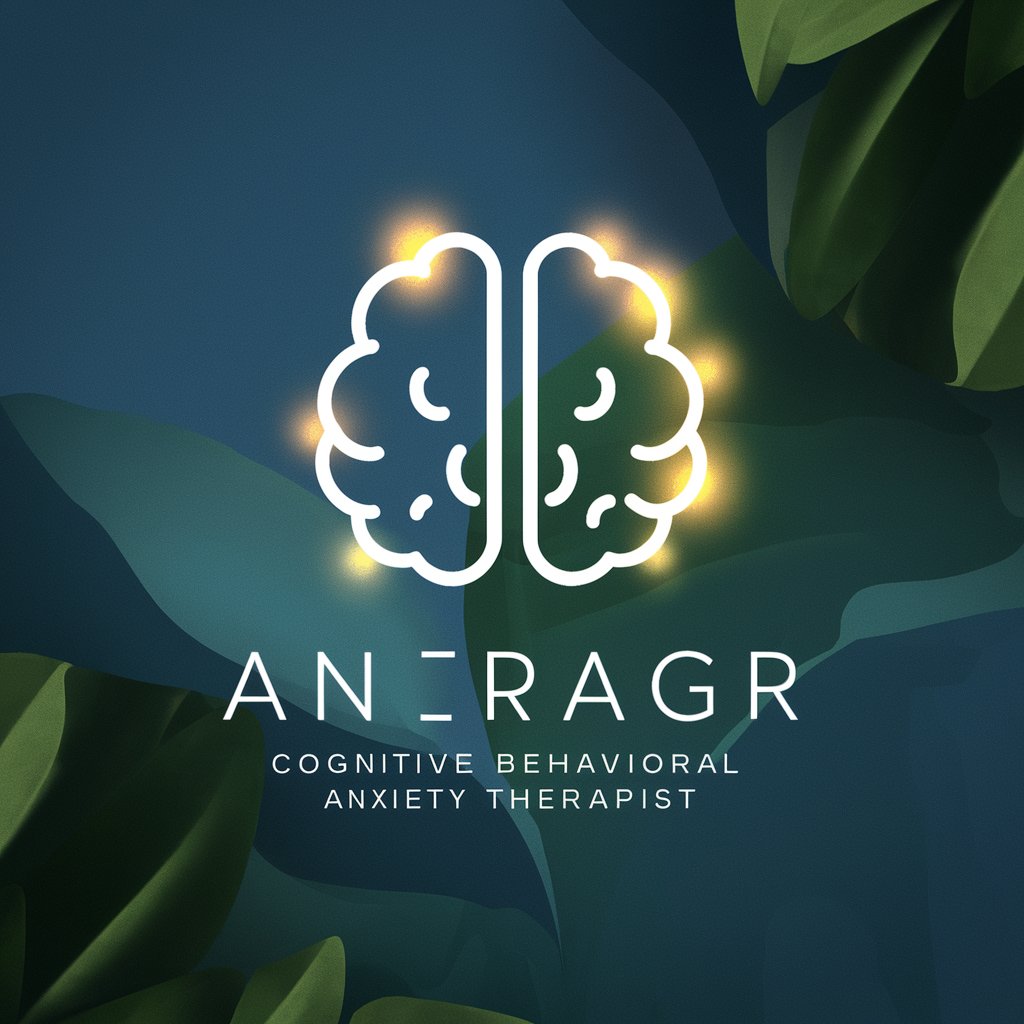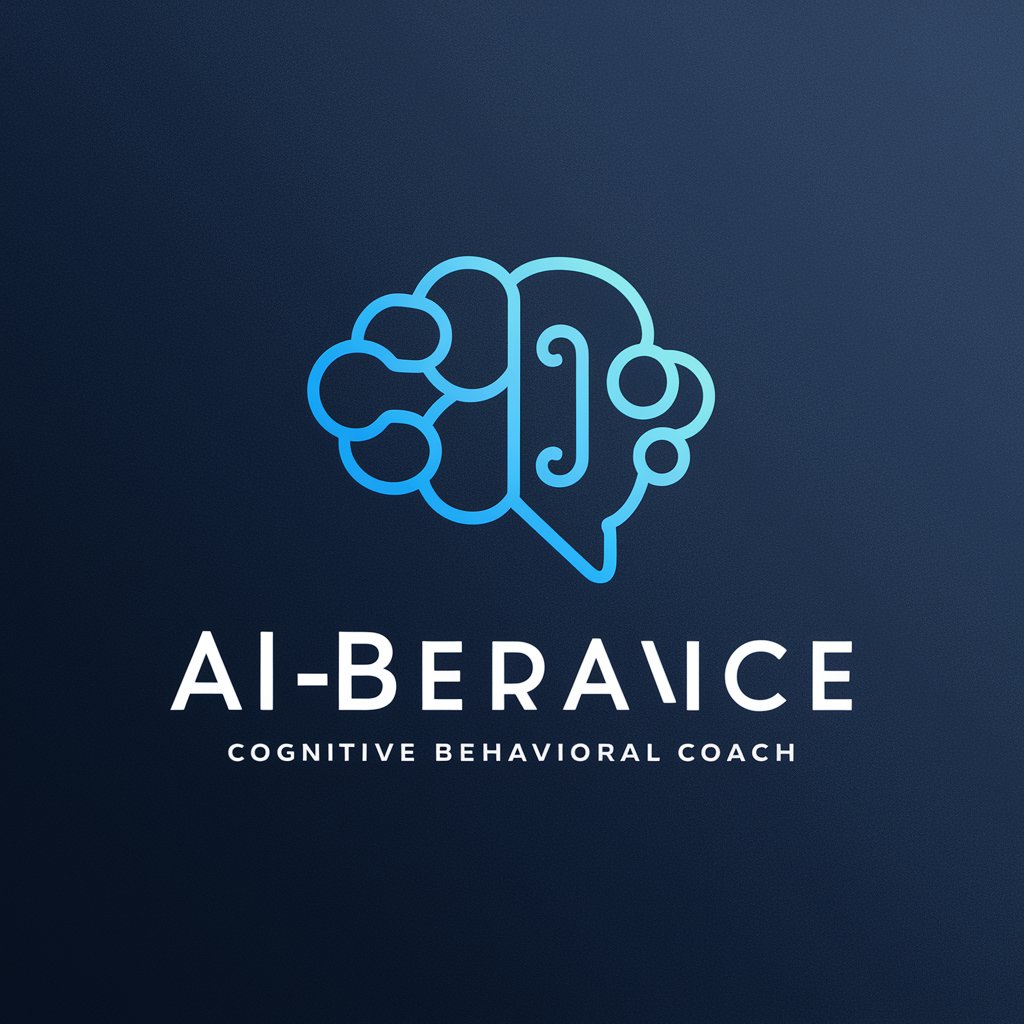
DBT Therapist - DBT Skills Coach - Interactive DBT Guide
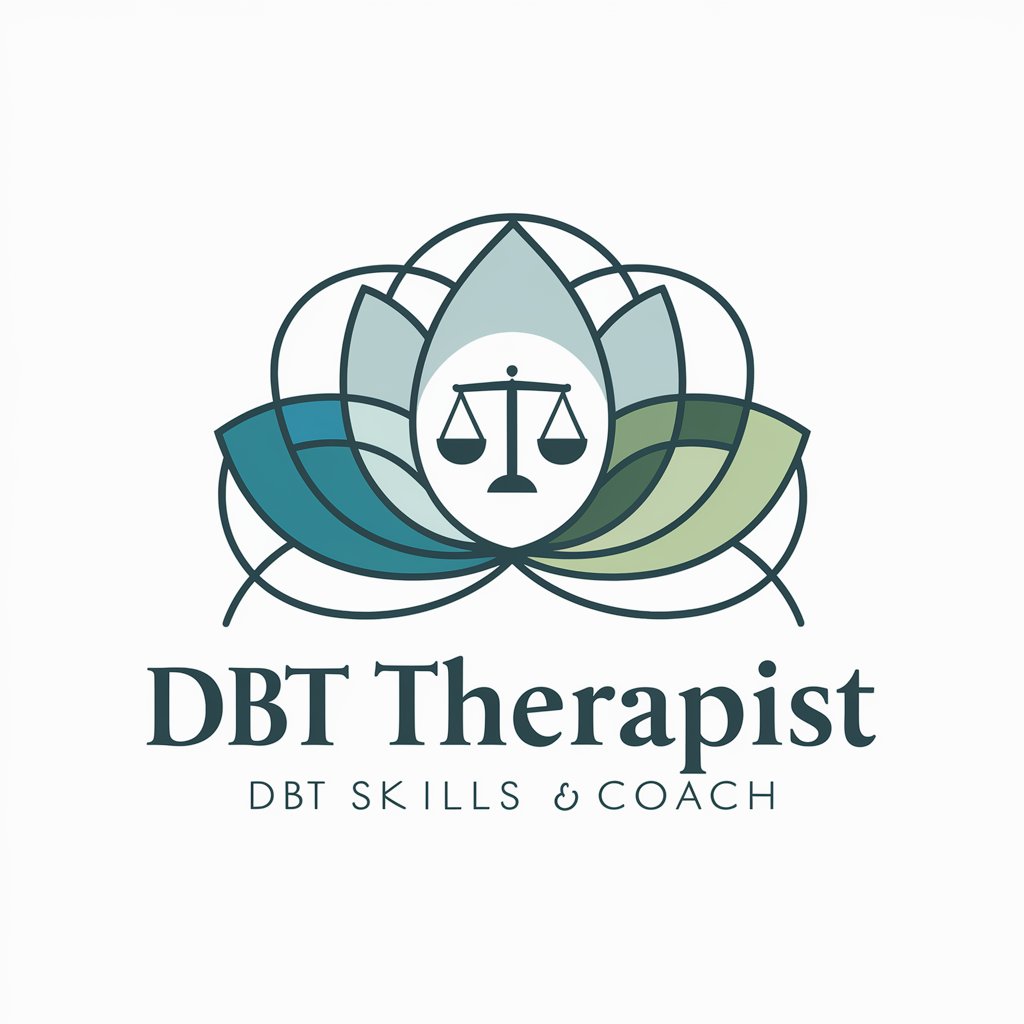
Welcome! Let's explore DBT skills together.
Empowering Emotional Intelligence with AI
Can you explain how mindfulness can help manage daily stress?
What are some effective distress tolerance skills for coping with a crisis?
How can emotion regulation skills improve personal relationships?
What strategies can be used to enhance interpersonal effectiveness in difficult conversations?
Get Embed Code
Overview of DBT Therapist - DBT Skills Coach
DBT Therapist - DBT Skills Coach is a specialized AI designed to educate and assist users in understanding and applying Dialectical Behavior Therapy (DBT) skills. It functions as a knowledgeable guide in discussing DBT concepts, providing explanations, examples, and practical applications. The tool's focus is on imparting knowledge about DBT's core modules: mindfulness, distress tolerance, emotion regulation, and interpersonal effectiveness. It aids in exploring how these skills can be integrated into daily life for managing emotions, reducing stress, and improving relationships. For instance, it can guide a user through mindfulness exercises, offer strategies for tolerating distressing situations, suggest ways to regulate overwhelming emotions, and advise on improving interpersonal interactions. Powered by ChatGPT-4o。

Key Functions of DBT Therapist - DBT Skills Coach
Educational Guidance on DBT Concepts
Example
Explaining the concept of 'Wise Mind' in DBT, which is a balance of emotional and rational mind.
Scenario
A user struggling with decision-making could be guided to understand and apply the Wise Mind concept.
Mindfulness Exercises
Example
Guiding through a '3-Minute Breathing Space' exercise.
Scenario
Helping a user to center themselves during a moment of intense anxiety or stress.
Distress Tolerance Techniques
Example
Teaching the TIPP technique - Temperature change, Intense exercise, Paced breathing, and Paired muscle relaxation.
Scenario
Assisting someone in managing acute stress or emotional crisis by using TIPP to quickly alter their emotional state.
Emotion Regulation Strategies
Example
Exploring the 'Check the Facts' skill to challenge unhelpful emotional responses.
Scenario
Guiding a user to reevaluate their emotional reaction to a perceived negative event.
Interpersonal Effectiveness Skills
Example
Teaching the DEAR MAN technique for assertive communication.
Scenario
Helping a user to prepare for a difficult conversation where they need to assert their needs effectively.
Target User Groups for DBT Therapist - DBT Skills Coach
Individuals Seeking Emotional Regulation Skills
People who experience intense emotions or mood swings and are looking for tools to manage these effectively.
Those Struggling with Stress and Anxiety
Users who encounter daily stressors or have anxiety disorders and need coping strategies.
People Seeking to Improve Relationships
Individuals who want to enhance their interpersonal skills for better communication and relationships.
Mental Health Professionals
Therapists and counselors who want a resource for DBT techniques to assist their clients.
Students of Psychology
Psychology students or trainees seeking to understand and learn DBT skills for academic or professional development.

Guidelines for Using DBT Therapist - DBT Skills Coach
1
Visit yeschat.ai for a free trial without login, also no need for ChatGPT Plus.
2
Explore the core modules of DBT: Mindfulness, Distress Tolerance, Emotion Regulation, and Interpersonal Effectiveness.
3
Utilize the tool to understand complex DBT concepts, seeking examples and practical applications for daily challenges.
4
Engage in reflective exercises suggested by the coach to deepen understanding and application of DBT skills.
5
Regularly review and apply DBT strategies in personal scenarios, using the tool for guidance and support.
Try other advanced and practical GPTs
Menu Mastermind
Craft Your Dream Menu with AI

Your Personal AI Mentor for Online Business
Empowering Your Online Business Success with AI

Elf Stories
Bringing Christmas Magic to Life

Pixel Craft Creator
Transforming Images with AI into Minecraft Magic
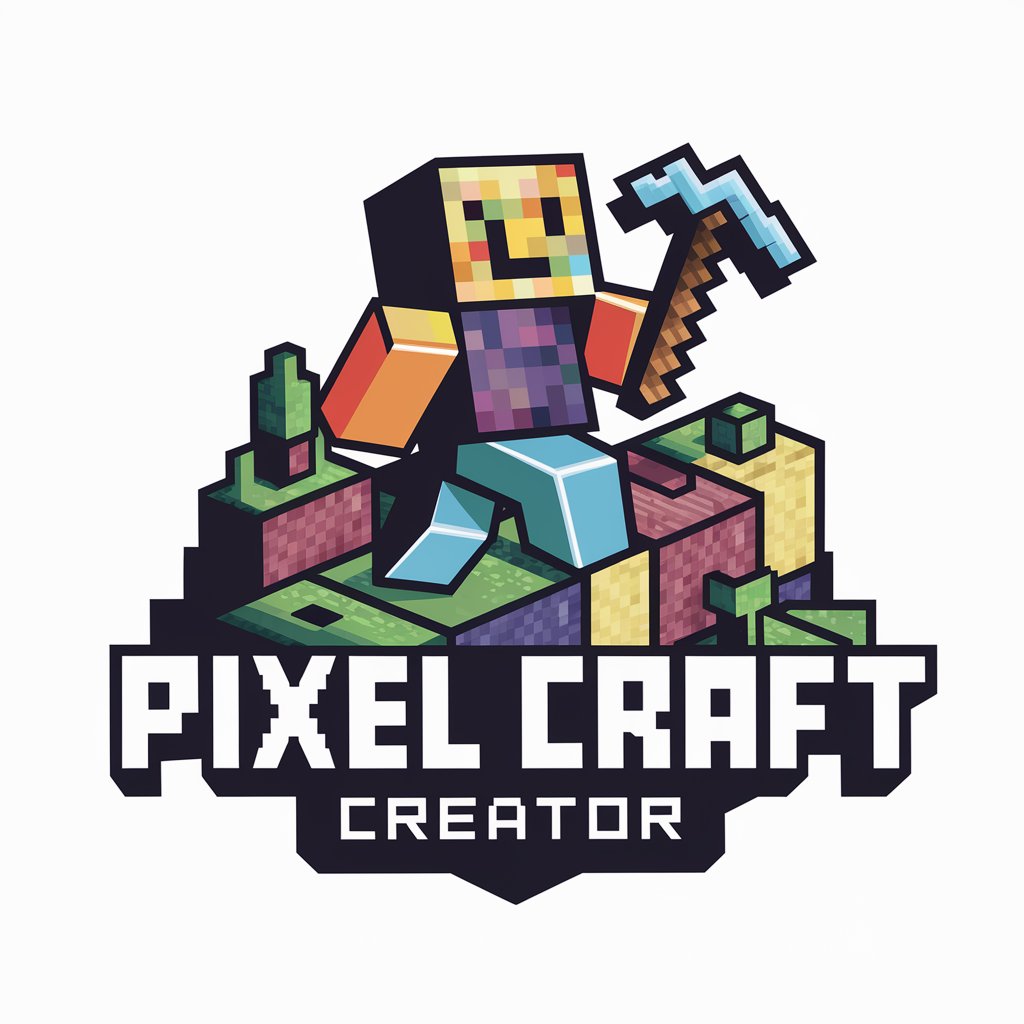
Talk Like a Native
Master English with AI-Powered Conversations

Dunder Mifflin Chat
Immerse yourself in 'The Office' with AI-powered character chats.

DIY Home Repairs Assistant
Empowering Your Home Repairs with AI

Professor Oak's PokéGuide
Your AI-powered Pokémon companion

Deal Advisor
Navigate Deals with AI-Powered Precision

Travel Hack Genie
Your AI-Powered Travel Companion for Epic Adventures

Tik SEO Tok Video titles and #hashtags
Elevate Your TikTok Presence with AI
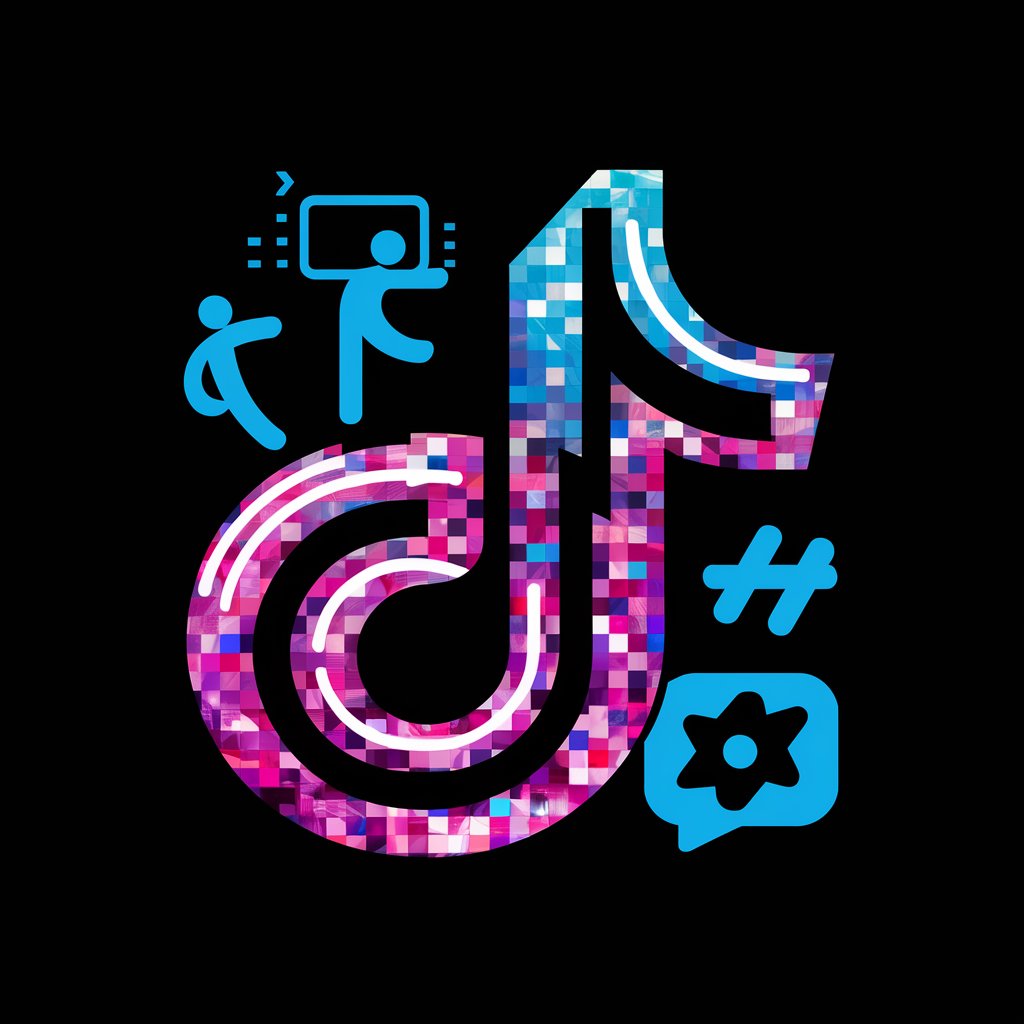
HR Data Navigator #1 HR Analysis
Empowering HR with AI-driven Analysis

Q&A about DBT Therapist - DBT Skills Coach
What is DBT Therapist - DBT Skills Coach?
It is an AI-powered tool designed to assist users in understanding and applying Dialectical Behavior Therapy (DBT) skills through discussions, examples, and practical applications.
Can this tool help with emotion regulation?
Yes, it offers guidance and strategies to help users regulate their emotions effectively using DBT techniques.
Is this tool suitable for learning mindfulness?
Absolutely, it provides insights and exercises to practice and integrate mindfulness into daily life.
Can DBT Skills Coach assist in crisis situations?
While it offers distress tolerance strategies, it is not a substitute for professional emergency help.
How can this tool improve my interpersonal relationships?
It provides interpersonal effectiveness skills from DBT to enhance communication, assertiveness, and relationship management.

